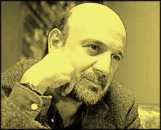The relative peace, called "negative peace" by Doctor Mithat Sancar, achieved in the military front in the years following 1999 is almost destroyed. And when we look at the political arena, we see an extraordinary chaos among Kurds.
Conflicting statements are following one another. Kurdish rebel leader Abdullah Ocalan from the Imrali prison, Kurdistan Workers' Party (PKK)- in other words- the encampment at the Qandil mountains, Kongra-Gel, pro-Kurdish Democratic People's Party (DEHAP), the representatives of different Kurdish political movements and independent experts are generally making incoherent statements about the Middle East, the United States of America (USA), or relations with Ankara.
Two recent major events have had an effect on the Kurdish movement in general, PKK in specific, and actually altered all factors. These are:
* The arrest of PKK leader Abdullah Ocalan in 1999
* The invasion of Iraq by the US in 2003
The first turning point, the arrest and imprisonment of Ocalan, was actually the arrest and conviction of PKK, which is a leader group. The contradiction between the policies Ocalan pursued before he was imprisoned, and those he pursued after he was jailed at Imrali island, clearly signal this radical change.
The second turning point completely altered the characteristics of PKK's relations with the political figures in Northern Iraq, namely Masoud Barzani and Jalal Talabani, and especially its relations with the U.S.
It can easily be seen that PKK has wholly changed its policies toward Barzani, Talabani and the USA after the invasion.
Problems of transition into a "multiparty life"
Two main issues could be put into use to explain the above changes in the political arena, and the transition into an uncompromising incoherent attitude:
* It has become evident that the PKK is not an organization which can generate long-term policies and which has the personnel to implement those policies
* While PKK had the skills and power to take initiative in Turkey until 1992, during the last years it has suffered political and organizational defeats because of wrong policies. It is now unable to generate policies by itself and has to comply with the templates drawn out by the important regional powers.
* PKK lost its central leadership and the power to generate policies after 1999 and has started to face difficulties within itself.
Osman Ocalan completely broke off from the PKK and formed another group, which is close to USA. Interests with the support of Talabani. He sometimes openly and sometimes in a limited manner, opposes contradicting policies pursued by the PKK and by those outside the PKK. All these demonstrate that the PKK is going through a period of separating, demolishing and disintegration.
Although the PKK has began to lose its monopoly in the Kurdish political arena, the absence of another political power to replace it has brought the organization into a position close to where it was at the early 1980s when it was first established.
These developments turned PKK into an intolerant, harsh organization, which doesn't accept any competition and one, which tries to prove its strength through extra judicial killings, pressures and threats. PKK, which rose to power in the 1980s and won public support, has been politically retreating since 1999 and losing its personnel.
PKK is going through the difficulties of the transition into a multiparty system from a single-party regime. Quite like the transition the Republican People's Party (CHP) went through in 1964.
As they approach the end of the road
Some side establishments and institutions, which have their roots in PKK, and which have not been able to forgo the habits of the single-party regime, don't have neither the political will, nor the creative perspective to generate a new alternative, in other words, a "third voice."
Their call for peace is viewed as devoid of persuasiveness. That's because their peace is tied upon one person. Surely, the Kurdish problem has long exceeded the limits of the Diyarbakir-Van-Hakkari triangle and definitely cannot be squeezed within the limits of Tehran-Damascus-Baghdad-Ankara quadrangle.
The Kurdish problem has become a global problem on the Washington-London-Moscow line. The number of actors who are involved and who have an interest in the issue has increased, and the taxiway of the actors has become more complicated.
PKK's embracing of violence again as a political aims or means can be considered as the last struggles of a political power, which is approaching to the end of the road.
Moreover, this violence may bring Turkey's democracy under the control of militarism once again and this time, more forcefully.
When they are misled about the address of a solution
Despite all these negative developments, it is not acceptable for any of the individuals and institutions, who debate the solution of the Kurdish problem through narrow political arguments, and who try to generate policies by confusing the essence and the broad issues of the problem to say, "It must be realized that today, PKK and its leader Ocalan are the biggest obstacles in front of the solution of the Kurdish problem."
Because this is mainly the attitude of the General Staff .
The fact that the advocates of this argument are also approving the USA. invasion of Iraq, are looking at the developments in northern Iraq through short-term spectacles, and are more embracing of the nationalistic approach rather than the leftist ideology, shouldn't be a coincidence.
Claiming that "...this clash is under the control of the General Staff and the General Staff can end this war or escalate it whenever it wants to," is the secret smile of a completely nihilist and imperialist theory.
We need to look at Ankara-Washington and Ankara-Baghdad relations to see the future of the violence we have witnessed in Kusadasi, Marmaris, Cesme or Sirnak.
And we need to look at the same address for the future of PKK or the General Staff! (RD/EU/EA/YE)




